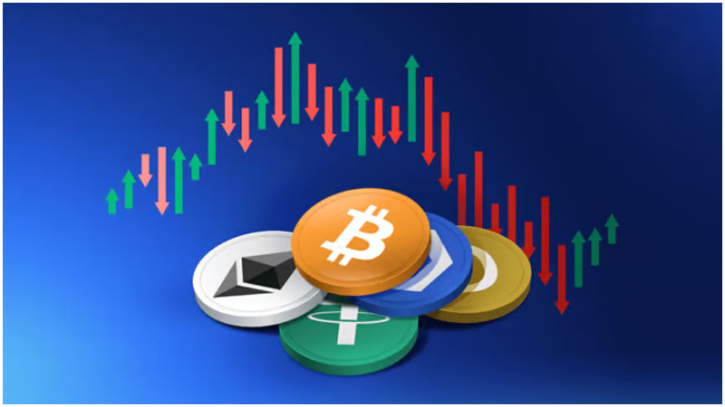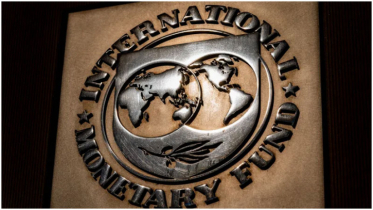Cryptocurrencies in Bangladesh: A growing shadow economy

Cryptocurrencies like Bitcoin and Ethereum have introduced a transformative way of handling money, offering a decentralized, digital alternative to traditional currencies. Built on blockchain technology, these virtual currencies use cryptography for secure transactions, making them resistant to manipulation by central authorities. Unlike traditional currencies that are issued and controlled by governments, cryptocurrencies operate outside of any centralized regulation, which is both what makes them unique and, at times, controversial.
In Bangladesh, cryptocurrencies remain a contentious issue. Officially, the government has restricted their use for transactions due to concerns over money laundering and unregulated trade. Despite this, there is a thriving underground market where individuals regularly engage in cryptocurrency trading, largely unnoticed by the authorities. Apps such as Binance and KuCoin, which are designed for trading crypto, are easily accessible through the Google Play Store and Apple App Store in Bangladesh. This unrestricted availability, combined with the lack of strict verification requirements, allows users to trade cryptocurrencies freely, including large sums, despite the official restrictions.
The process of acquiring cryptocurrencies in Bangladesh typically happens in one of two ways. One method involves purchasing crypto using international credit or debit cards that are endorsed in US dollars. This allows banks to track the movement of funds and potentially identify individuals involved in crypto trading. However, there is also a more secretive method that involves local agents. These agents, scattered across the country, buy and sell cryptocurrencies like Bitcoin and USDT (Tether) in exchange for Bangladeshi Taka. They charge a small commission on each transaction, making a profit from the buy-sell spread. Investors buy cryptocurrency with the hope that its value will appreciate and later sell it back to these agents, converting their holdings into Taka. This process mirrors the operations of the stock market, with one key difference: there is no central authority regulating the trade, nor is there any taxation on the transactions.
However, the darker side of the cryptocurrency trade in Bangladesh cannot be ignored. Many individuals are using cryptocurrencies as a tool for money laundering, transferring funds across borders with little to no oversight. The process typically works like this: a person buys cryptocurrency from a Bangladeshi agent using Taka, then sells it to an agent in another country, such as the USA, converting their cryptocurrency into foreign currency. The foreign agent then deposits the equivalent amount in dollars into the individual's bank account, completing the illicit transaction. This decentralized nature of crypto trading, along with the use of anonymous wallets like TRC20, makes it difficult for authorities to trace the flow of money and monitor suspicious transactions.
In addition to money laundering, the country has witnessed an alarming rise in Ponzi schemes and scams in the cryptocurrency space. One of the most notable cases was the MTFE scam, which drew thousands of people with promises of daily returns of 5 per cent on their investments. Unlike legitimate platforms like Binance or KuCoin, MTFE did not allow users to buy or sell crypto using Taka or traditional bank accounts. Instead, investors were required to transfer USDT from other crypto exchanges into their MTFE accounts via the TRC20 wallet. Eventually, MTFE disappeared overnight, taking with it the funds of many unsuspecting investors. Similar platforms, such as MT4, MT5, and Exness, continue to operate in Bangladesh, luring individuals with the promise of quick profits. These operations are often unsustainable and operate under the guise of legitimate businesses, but eventually, they too will collapse, leaving investors with nothing.
Further complicating the situation are online gambling platforms that accept cryptocurrencies as payment. After purchasing crypto from local agents, users often transfer their funds to these gambling apps, where they engage in high-risk betting. While some may win, the majority lose, contributing to a larger pattern of financial instability. What is clear, however, is that the crypto market in Bangladesh is not only unregulated but also growing increasingly volatile and risky.
To combat these issues, the government must take decisive action. One key step would be to hold cryptocurrency agents accountable for their activities, as they play a significant role in facilitating illegal trades. If crypto trading is illegal, it is crucial to question why platforms like Binance and KuCoin continue to operate in the country. It is important to remember that cryptocurrency trading is not illegal everywhere. In countries like the USA, individuals are required to link their crypto accounts to their Social Security Number (SSN), ensuring transparency and proper taxation of all profits. Bangladesh could adopt a similar system to regulate cryptocurrency trading, creating a framework that ensures accountability and oversight. If not a complete ban, such measures could strike a balance between harnessing the potential of cryptocurrencies and safeguarding the country's financial stability.
The government's primary concern should be safeguarding of the nation's financial stability. While global figures like Lionel Messi may sport jerseys emblazoned with the Binance logo, this should not distract the government from its responsibility to protect its economy. The rapid growth of crypto agents and the widespread involvement of people in these shadowy transactions are troubling signs. If the country is to maintain control over its financial system and ensure the safety of its citizens, decisive action is needed to curb the rise of unregulated cryptocurrency trading.
Source: The Financial Express.
.png)




